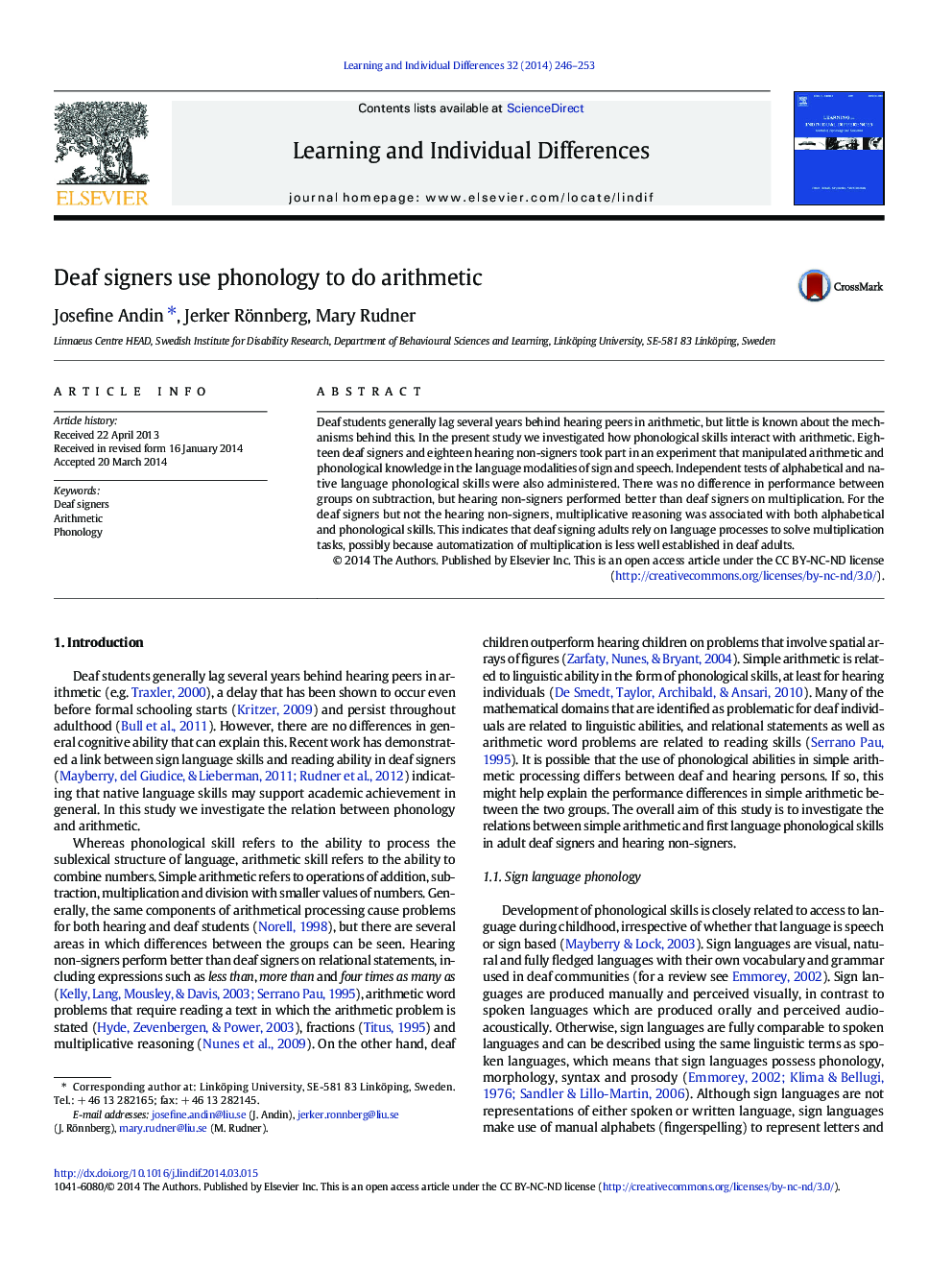| Article ID | Journal | Published Year | Pages | File Type |
|---|---|---|---|---|
| 6845165 | Learning and Individual Differences | 2014 | 8 Pages |
Abstract
Deaf students generally lag several years behind hearing peers in arithmetic, but little is known about the mechanisms behind this. In the present study we investigated how phonological skills interact with arithmetic. Eighteen deaf signers and eighteen hearing non-signers took part in an experiment that manipulated arithmetic and phonological knowledge in the language modalities of sign and speech. Independent tests of alphabetical and native language phonological skills were also administered. There was no difference in performance between groups on subtraction, but hearing non-signers performed better than deaf signers on multiplication. For the deaf signers but not the hearing non-signers, multiplicative reasoning was associated with both alphabetical and phonological skills. This indicates that deaf signing adults rely on language processes to solve multiplication tasks, possibly because automatization of multiplication is less well established in deaf adults.
Keywords
Related Topics
Social Sciences and Humanities
Psychology
Developmental and Educational Psychology
Authors
Josefine Andin, Jerker Rönnberg, Mary Rudner,
